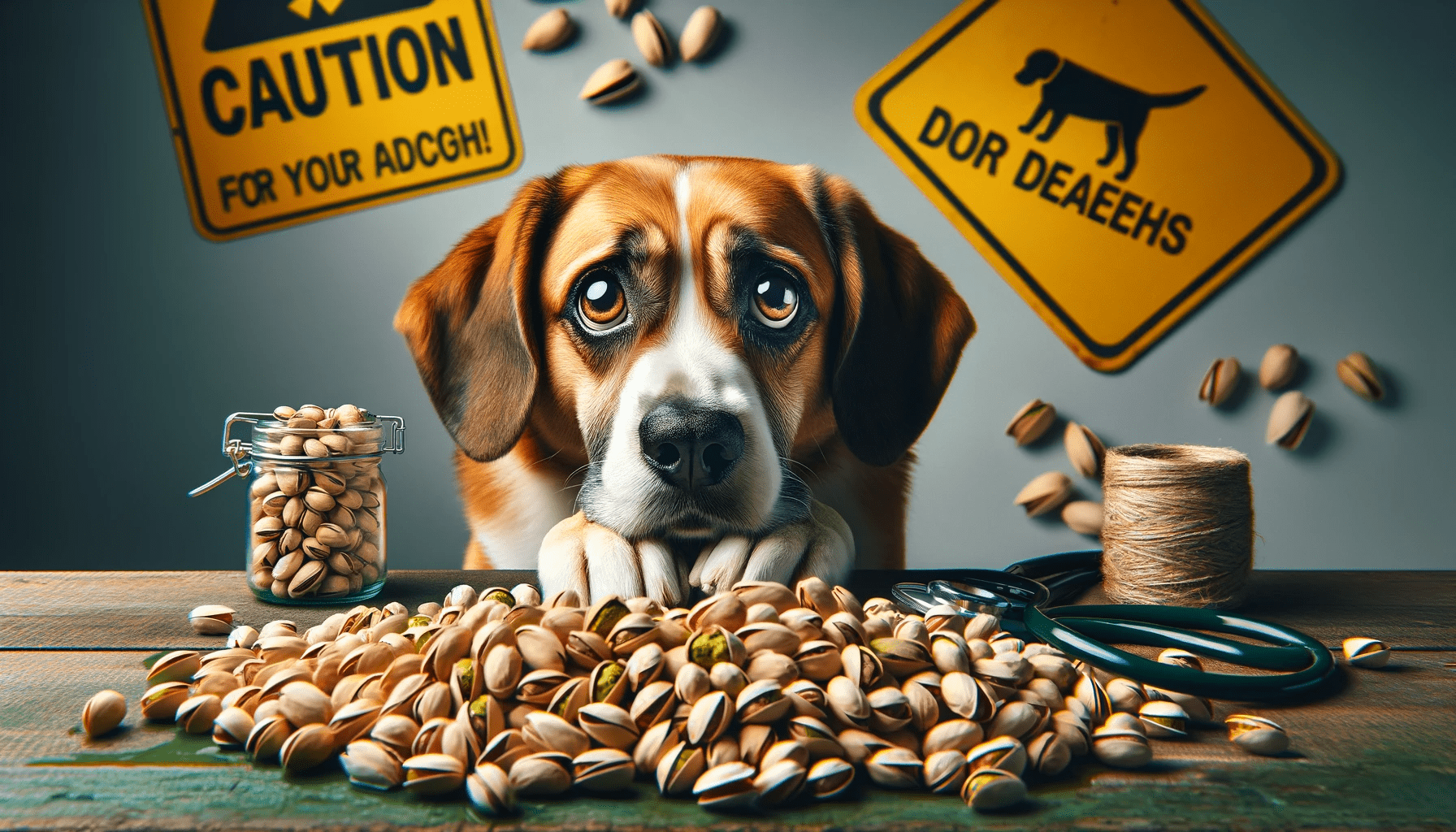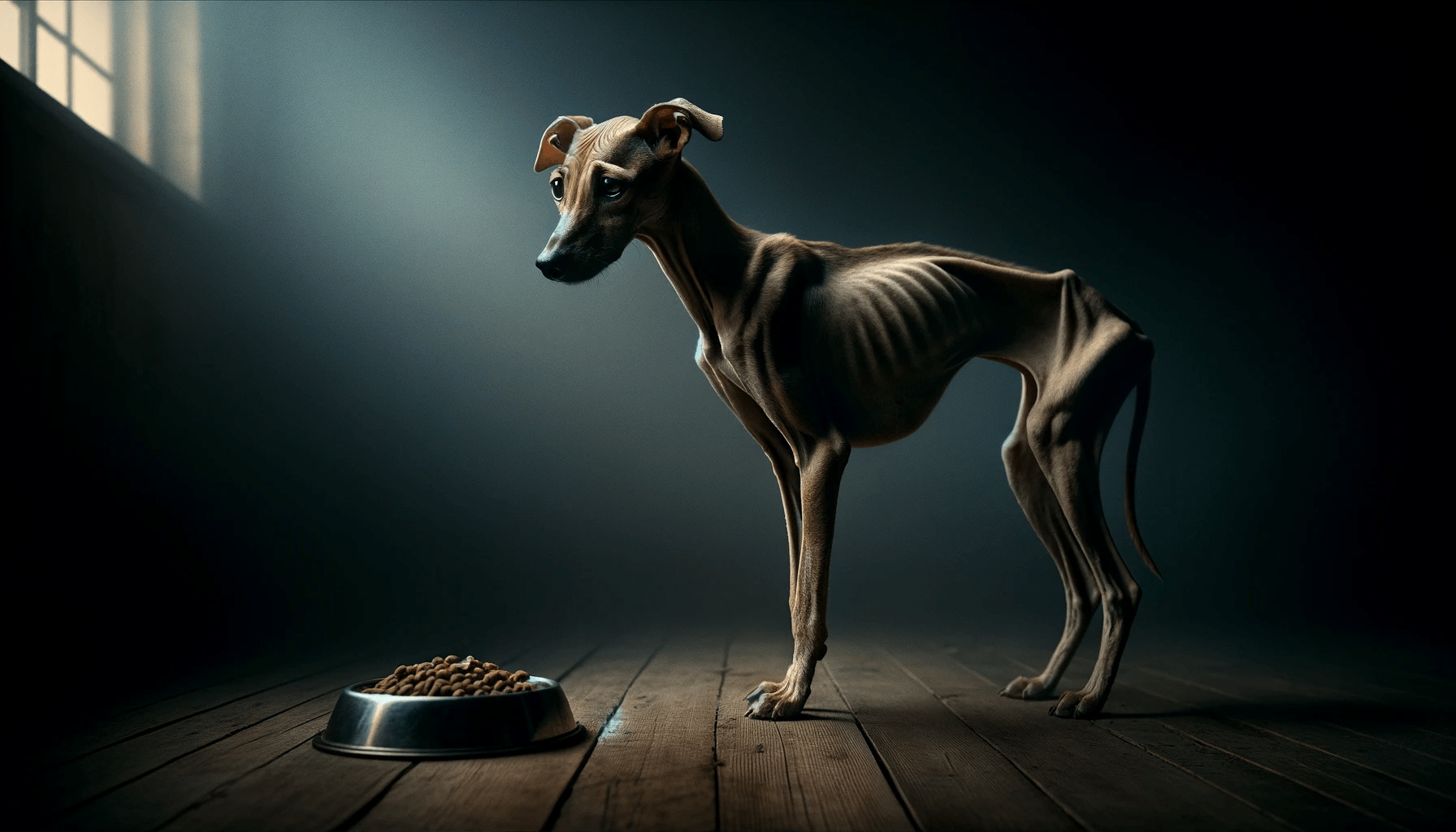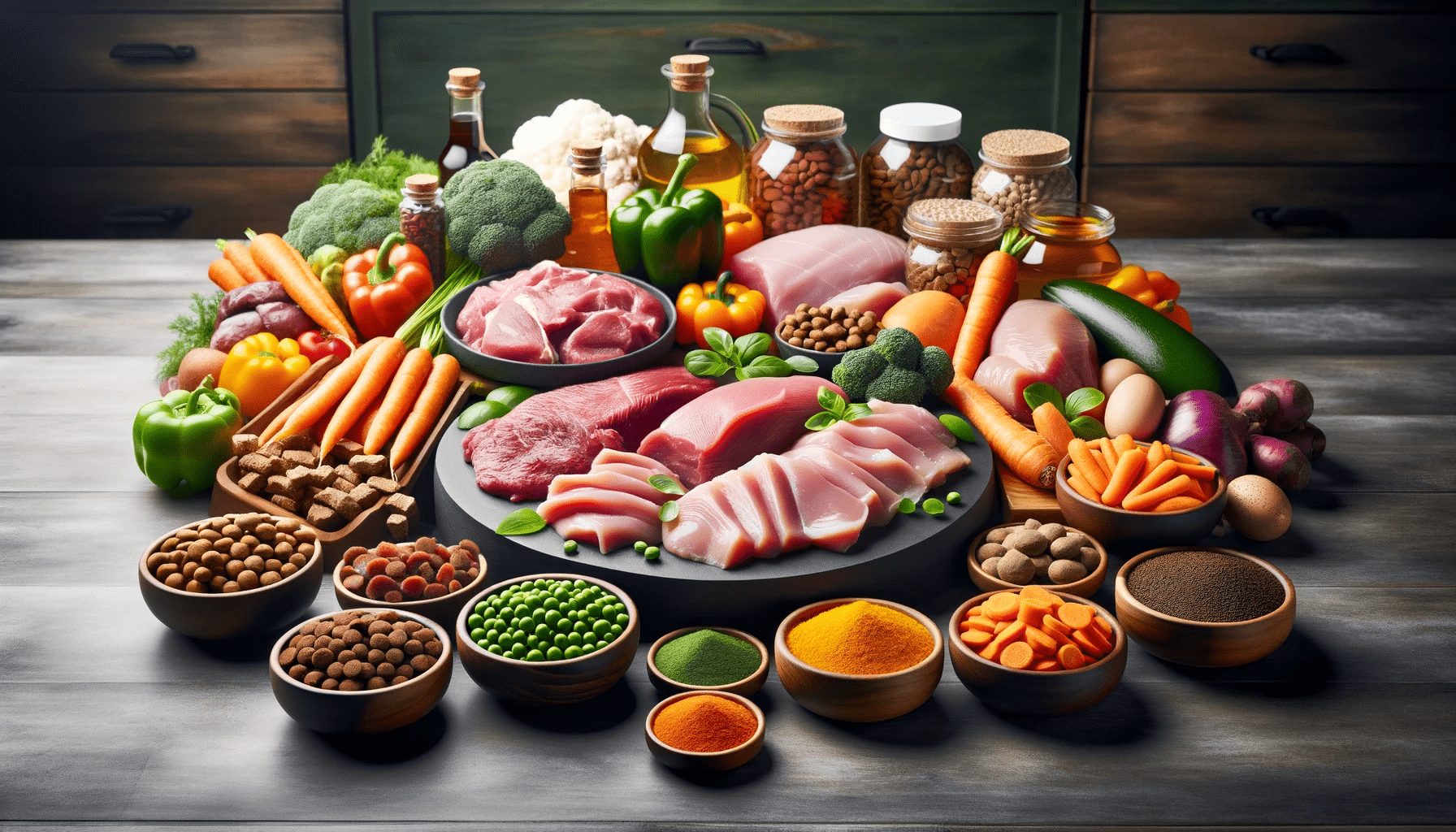Are you eager to unlock the secrets to providing your furry friend with the best nutrition possible? Look no further!
In this article, we'll delve into the world of optimal dog nutrition, revealing the key factors that contribute to a healthy and balanced diet.
From understanding the importance of essential nutrients to choosing the right dog food, we'll equip you with the knowledge you need to ensure your canine companion thrives.
Get ready to unveil the secrets to optimal dog nutrition!
Key Takeaways
- Balanced nutrition is vital for physical development, immune system function, and overall vitality in dogs.
- Two strategies for meeting nutritional needs are incorporating nutritional supplements and preparing homemade dog food.
- Consulting with a veterinary nutritionist ensures a well-balanced homemade diet for dogs.
- Nutritional needs vary by life stage, with puppies requiring a high protein and energy diet, adults needing a balanced diet, and seniors benefiting from a lower calorie and fat diet with joint-supporting nutrients.
The Importance of Balanced Nutrition
To ensure your dog receives the necessary nutrients for their overall health and well-being, it's crucial to provide them with a well-balanced diet. Balanced nutrition plays a vital role in supporting your dog's physical development, immune system function, and overall vitality.
When it comes to meeting your dog's nutritional needs, there are two key strategies to consider: incorporating nutritional supplements into their diet and preparing homemade dog food.
Nutritional supplements can be an excellent addition to your dog's diet, providing them with essential vitamins, minerals, and other nutrients that may be lacking in their regular food. These supplements come in various forms, such as powders, tablets, or liquids, and can be easily mixed into your dog's meals. However, it's essential to consult with your veterinarian before introducing any new supplements to ensure they're appropriate for your dog's specific needs.
Alternatively, preparing homemade dog food can give you more control over the ingredients and nutritional content of your dog's meals. By using high-quality, human-grade ingredients, you can tailor your dog's diet to meet their individual requirements. It's important to note that homemade dog food should be properly balanced to provide all the necessary nutrients, including proteins, carbohydrates, fats, vitamins, and minerals. Consulting with a veterinary nutritionist can help you create a well-balanced homemade diet that meets your dog's nutritional needs.
Nutritional Needs for Different Life Stages
As your dog goes through different life stages, their nutritional needs will vary. It's important to provide them with life stage-specific diets to ensure they receive the right balance of nutrients at each stage of their development.
Here are the nutritional requirements for dogs at different ages:
- Puppy stage (0-12 months): During this stage, puppies experience rapid growth and development. They require a diet that's high in protein and energy to support their growing bodies. Essential nutrients like calcium and phosphorus are crucial for bone development. Additionally, DHA, an omega-3 fatty acid, is important for brain and vision development.
- Adult stage (1-7 years): Once your dog reaches adulthood, their nutritional needs change. They require a balanced diet with moderate levels of protein, carbohydrates, and fats. It's important to maintain their ideal body weight to prevent obesity and related health issues. Regular exercise is also essential to keep them physically fit.
- Senior stage (7 years and older): As dogs age, their metabolism slows down, and they become less active. Their nutritional requirements change again, and they may require a diet that's lower in calories and fat. Senior-specific diets may contain joint-supporting nutrients like glucosamine and chondroitin to promote mobility and support aging joints.
Essential Nutrients for Dogs
You need to ensure your dog receives the essential nutrients for optimal nutrition. Just like humans, dogs have specific dietary requirements to support their growth, development, and overall well-being. Providing a balanced and nutritious diet is crucial for their health and longevity. To meet these requirements, consider incorporating nutritional supplements into your dog's diet.
Protein is an essential nutrient for dogs as it supports muscle development and repair. Good sources of protein for dogs include meat, fish, and eggs. Fats are also important for dogs as they provide energy and support healthy skin and coat. Omega-3 and omega-6 fatty acids are particularly beneficial and can be found in fish oil and flaxseed.
Carbohydrates are another important nutrient for dogs, providing energy and fiber. Whole grains, such as brown rice and oats, are excellent sources of carbohydrates. Vitamins and minerals are necessary for various bodily functions, including immune support and bone health. Incorporating a variety of fruits and vegetables into your dog's diet can help meet these requirements.
When it comes to nutritional supplements, it's important to consult with your veterinarian to determine the specific needs of your dog. They may recommend supplements such as joint support for older dogs or probiotics for digestive health.
Understanding Macronutrients and Micronutrients
Incorporate macronutrients and micronutrients into your dog's diet to ensure optimal nutrition. Understanding nutrient absorption is key in providing your furry friend with the right balance of these essential components.
Here are three important things to know about macronutrients and micronutrients:
- Macronutrients: These are the nutrients that provide energy to your dog's body. They include carbohydrates, proteins, and fats. Carbohydrates are the primary source of energy, while proteins are essential for muscle growth and repair. Fats are important for hormone production and the absorption of certain vitamins. It's crucial to provide your dog with a balanced mix of these macronutrients to support their overall well-being.
- Micronutrients: These are the vitamins and minerals that your dog needs in smaller quantities, but are equally important for their health. Micronutrients play a crucial role in various bodily functions, such as maintaining a strong immune system, promoting healthy bone growth, and aiding in proper digestion. Examples of micronutrients include vitamin A, vitamin D, calcium, and iron. Incorporating a variety of nutrient-rich foods into your dog's diet will help ensure they receive an adequate supply of these vital micronutrients.
- Impact on Dog Behavior: It's important to note that diet can also have an impact on your dog's behavior. Just like humans, dogs can experience mood swings and behavioral changes if their nutritional needs aren't met. Providing a well-balanced diet that includes the right combination of macronutrients and micronutrients can help promote a calm and balanced demeanor in your furry companion.
The Role of Protein in a Dog's Diet
Protein plays a crucial role in your dog's diet, providing essential building blocks for their muscles and supporting overall health. As a responsible dog owner, it's important to understand the significance of protein in your furry friend's nutrition.
When it comes to protein sources, there are numerous options available. Animal-based proteins such as chicken, beef, and fish are highly digestible and provide all the essential amino acids that dogs need. Additionally, eggs and dairy products can also serve as excellent sources of protein for your canine companion.
The amount of protein your dog requires depends on various factors, including their age, size, activity level, and overall health. Puppies and active dogs require more protein compared to senior or sedentary dogs. To ensure that your dog meets their protein requirements, consult with your veterinarian to determine the appropriate protein levels for your dog's specific needs.
It is worth noting that excessive protein intake can be harmful to your dog's health. Consuming too much protein can put strain on their kidneys and potentially lead to kidney disease. Therefore, it's crucial to strike a balance and provide your dog with the right amount of protein for optimal health.
Choosing the Right Dog Food for Optimal Nutrition
To choose the right dog food for optimal nutrition, it's essential to consider your dog's specific nutritional needs based on their breed. Different breeds have different requirements, so it's important to select a dog food that caters to those needs.
Reading dog food labels carefully is also crucial, as it allows you to determine the nutritional content, ingredients, and potential allergens present in the food.
Nutritional Needs by Breed
Choose the dog food that best meets your pup's nutritional needs by considering their breed. Each breed has specific nutritional requirements based on their size and activity level.
Here's a guide to help you understand the nutritional needs of different breeds:
- Nutritional needs by size:
- Small breeds: These dogs have faster metabolisms and higher energy levels. They require a diet rich in protein and fat to fuel their active lifestyle.
- Medium breeds: These dogs need a balanced diet that provides them with the right amount of nutrients for their size and activity level.
- Large breeds: These dogs have slower metabolisms and are prone to joint issues. They require a diet that supports their growth and maintains their joint health.
- Nutritional needs by activity level:
- High-energy breeds: These dogs need a diet that provides them with enough calories to fuel their active lifestyle. Look for dog food with higher protein and fat content.
- Low-energy breeds: These dogs have lower calorie requirements. Look for dog food that's lower in fat and provides balanced nutrition without excess calories.
Understanding your dog's breed-specific nutritional needs will help you choose the right dog food to optimize their health and well-being.
Reading Dog Food Labels
To ensure optimal nutrition for your pup, start by understanding how to read dog food labels.
Decoding labels can be overwhelming, but it's essential for selecting the right dog food with quality ingredients.
The first step is to examine the list of ingredients. Ingredients are listed in descending order by weight, so the first few ingredients are the most significant.
Look for high-quality protein sources like chicken, beef, or fish as the primary ingredient. Avoid dog foods that contain fillers such as corn, wheat, or soy, as these offer little nutritional value.
Additionally, check for essential nutrients like vitamins, minerals, and omega fatty acids. Avoid artificial preservatives, colors, and flavors.
Understanding how to read dog food labels allows you to make informed choices and provide your pup with optimal nutrition.
Common Nutritional Deficiencies in Dogs
You need to be aware of the common nutritional deficiencies that can occur in dogs to ensure their optimal health.
Firstly, essential vitamin deficiencies can lead to various health issues, such as weakened immune system and poor bone development.
Secondly, a lack of mineral intake can result in problems like muscle weakness and anemia.
Lastly, insufficient protein intake can put your dog at risk of muscle wastage and slower wound healing.
Essential Vitamin Deficiencies
To ensure optimal dog nutrition, it's crucial to identify and address common nutritional deficiencies in dogs, including essential vitamin deficiencies. Vitamin deficiencies can lead to various health issues in dogs, so it's important to understand the symptoms and take preventive measures.
Here are three common essential vitamin deficiencies in dogs:
- Vitamin A deficiency: This can result in poor night vision, dry and flaky skin, and weakened immune system.
- Vitamin D deficiency: Dogs lacking vitamin D may experience weak bones, muscle weakness, and an increased risk of fractures.
- Vitamin E deficiency: This can lead to muscle weakness, poor coordination, and reproductive problems in dogs.
Preventing vitamin deficiencies in dogs involves providing a balanced diet that includes foods rich in essential vitamins or using appropriate supplements recommended by veterinarians. Regular check-ups and blood tests can also help identify and address any deficiencies early on, ensuring your dog's optimal nutrition and overall health.
Lack of Mineral Intake
One common nutritional deficiency in dogs is a lack of minerals in their diet. Minerals are essential for various bodily functions, including bone health, muscle contraction, and nerve transmission.
When dogs don't receive an adequate amount of minerals, they may experience a range of negative effects. For example, a deficiency in calcium can lead to weak bones and teeth, while a lack of iron can result in anemia and decreased energy levels.
To address these deficiencies, mineral supplementation can be beneficial. Adding mineral-rich foods or supplements to a dog's diet can help ensure they receive the necessary minerals for optimal health. However, it's important to consult with a veterinarian before introducing any new supplements to ensure the correct dosage and to avoid any potential side effects.
Protein Insufficiency Risks
Dogs who lack sufficient protein intake are at risk of developing nutritional deficiencies. Protein plays a crucial role in a dog's overall health and well-being. Without enough protein, dogs may experience a range of consequences, including:
- Muscle loss: Protein is essential for muscle growth and repair. Insufficient protein intake can lead to muscle wasting and weakness in dogs.
- Immune system dysfunction: Protein is necessary for the production of antibodies and immune cells. A lack of protein can weaken the immune system, making dogs more susceptible to infections and diseases.
- Poor coat and skin health: Protein is vital for the formation of healthy skin cells and the production of fur. Dogs with protein deficiencies may have dull, dry coats and skin irritations.
To meet the protein requirements of active dogs, it's essential to provide them with a balanced diet that includes high-quality sources of protein such as meat, fish, and eggs. Consulting with a veterinarian can help determine the appropriate protein intake for your dog's specific needs.
Frequently Asked Questions
Can I Feed My Dog a Vegetarian or Vegan Diet?
You can feed your dog a vegetarian or vegan diet, but it's important to consider the pros and cons. Dogs are omnivores, but they require certain nutrients found in animal-based products. Consult with a veterinarian to ensure your dog thrives on a plant-based diet.
How Much Should I Feed My Dog Each Day?
To ensure optimal dog nutrition, it is crucial to understand portion control and establish a feeding schedule. The amount you should feed your dog each day depends on factors such as age, weight, activity level, and breed.
Can I Give My Dog Human Food as a Treat?
Yes, you can give your dog certain human food as a treat. However, it is important to know dog-safe options and the potential risks. Some safe options include carrots and plain, cooked chicken.
Should I Give My Dog Supplements or Vitamins?
You should consider giving your dog supplements or vitamins to ensure they are getting all the necessary nutrients. Dog supplements can be beneficial, especially for dogs on alternative diets that may be lacking certain nutrients.
How Often Should I Change My Dog's Diet?
When transitioning your dog to a new diet, it's important to do it gradually over a period of 7-10 days. Certain health conditions, like allergies or gastrointestinal issues, may require a change in your dog's diet.
Conclusion
In conclusion, providing optimal nutrition for dogs is crucial for their overall health and well-being. A balanced diet, tailored to their specific life stage and nutritional needs, is essential.
Understanding the importance of macronutrients and micronutrients, such as protein, is key in ensuring dogs receive the necessary nutrients for their growth, development, and maintenance.
By choosing the right dog food and addressing any potential nutritional deficiencies, pet owners can help their dogs thrive and lead a healthy, happy life.






